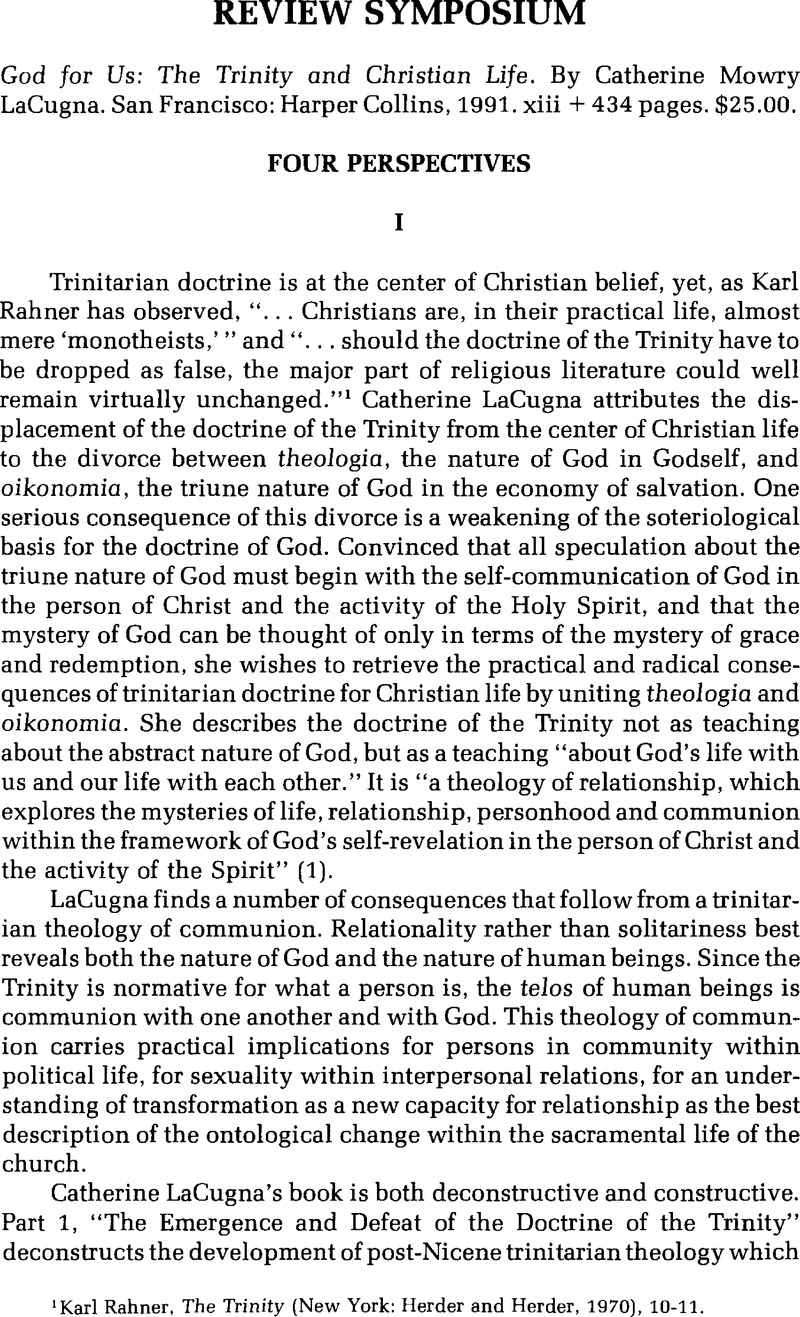Article contents
God for Us: The Trinity and Christian Life. Author's Response
Published online by Cambridge University Press: 09 September 2014
Abstract

- Type
- Review Symposium
- Information
- Copyright
- Copyright © The College Theology Society 1993
References
1 Zizioulas, John, “The Teaching of the Second Ecumenical Council on the Holy Spirit in Historical and Ecumenical Perspective” in Credo in Spiritum Sanctum, Atti del Congresso Teologico Internazionale di Pneumatologia (Vatican City: Libreria Editrice Vaticana, 1983), 51.Google Scholar
2 Finan says “we cannot afford to abandon the truth that God's triune being did not need our existence in order to be.” The precise issue is whether the communion between God and all creatures, which takes place through Jesus Christ by the power of the Holy Spirit, requires that God first exist in an eternal, intratrinitarian communion with Godself, to the degree that God would be a Trinity of persons without or apart from creation. Finan would answer in the affirmative (though she does not give reasons why), whereas both Haight and I (and other scholars) believe that it is possible but not necessary to posit such an intradivine community of persons and, moreover, that we are lacking the information needed to make such a decisive claim. Even Thomas Aquinas was very cautious about questions like these. In answer to the question about whether creation could be eternal, he replied that there were no convincing philosophical reasons against the eternity of creation, since even an eternal creation would still be a creature. In the end he appealed only to the text of Genesis 1:1 against the idea of an eternal creation.
- 11
- Cited by


